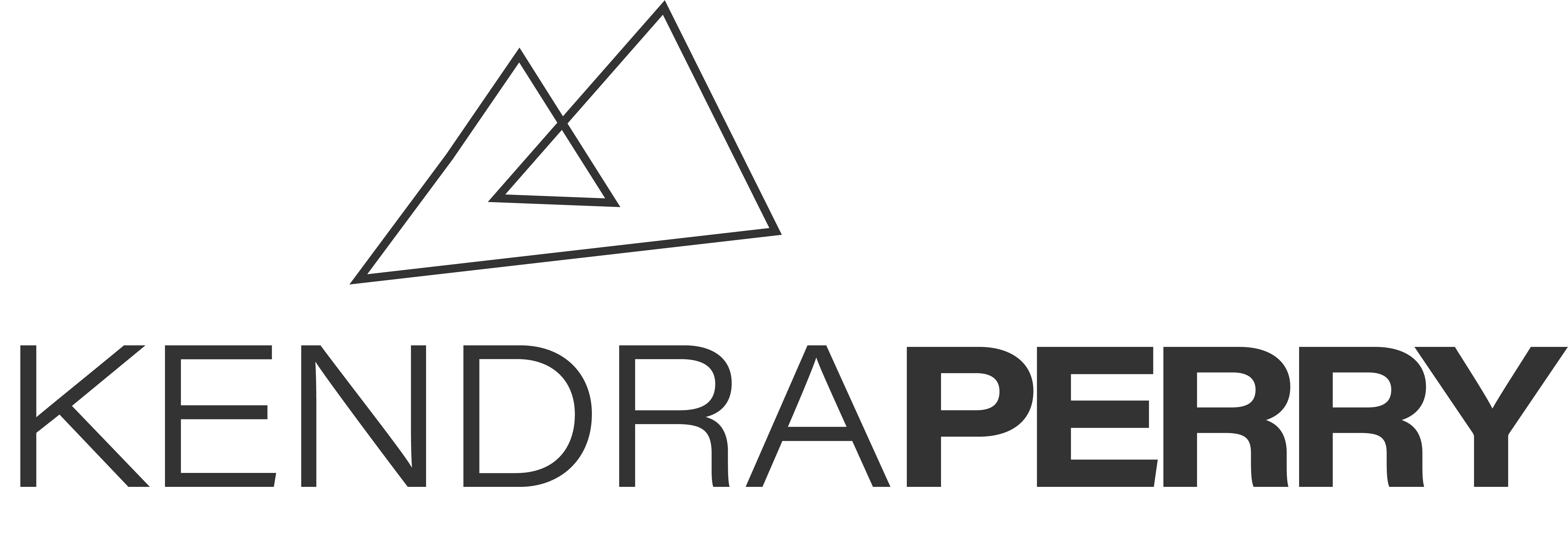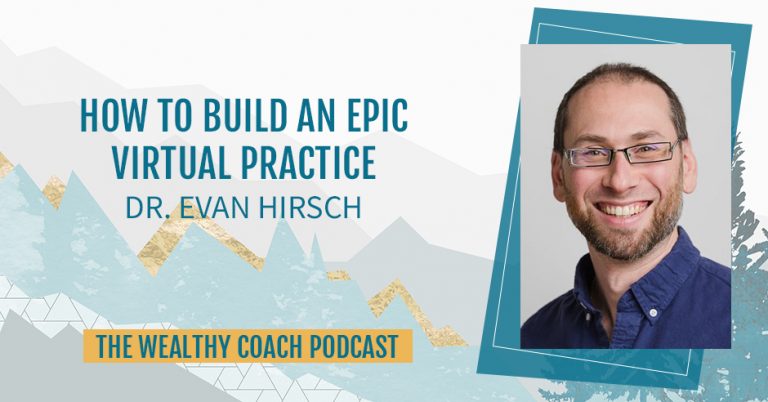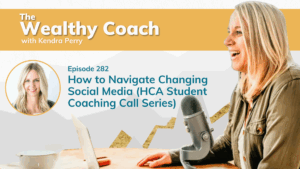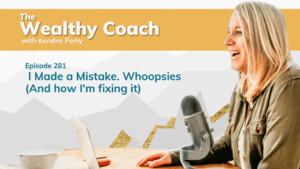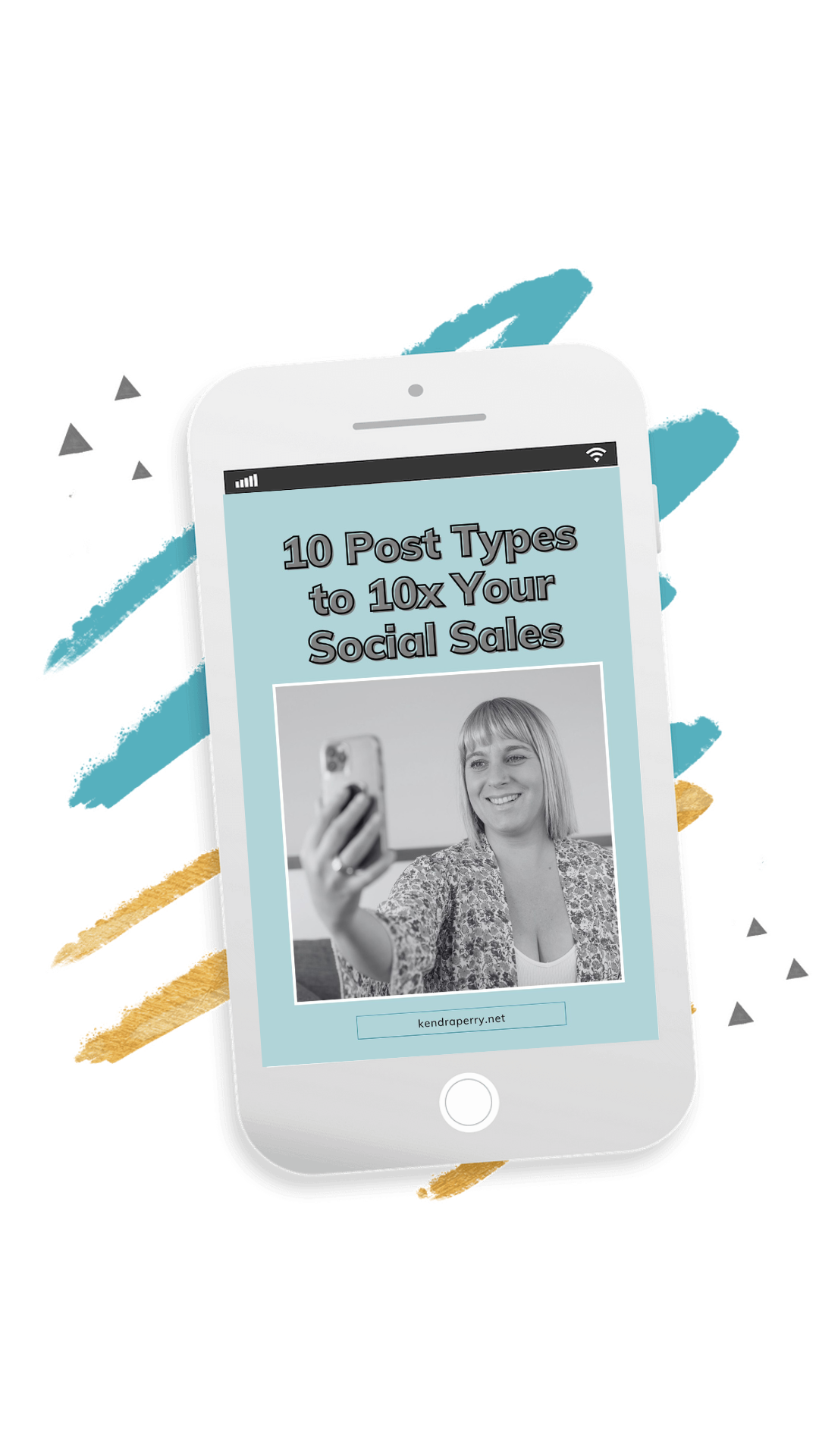Have you been resisting taking your practice virtual? Maybe you feel like you need to acquire some tech skills to take your practice online.
I invited my virtual practice expert and also my personal Functional Health Coach (who has changed my life), Dr. Evan Hirsch, onto the Wealthy Coach Podcast to discuss exactly how you can take your practice online.
We discuss:
- Why you need to go virtual
- How going online can save you time and money
- The simple things you need in place to go virtual
- How to ease into online business
- Where most new online practitioners are getting stuck and how to get unstuck
- The myth of needing to be a “techy person” in order to run an online practice
Connect with me on Instagram: @kendraperryinc
Connect with Evan on Facebook: facebook.com/DrEvanHirsch or Linkedin: linkedin.com/in/drevanhirsch
Health Coach Accelerator is NOW OPEN! Find out more at: go.kendraperry.net/hca
We would LOVE if you showed your love for this episode by leaving us a 5-star review! Not sure how? Here are a few ways to do it.
1) How to leave a 5-star review from your iPhone: https://www.loom.com/share/b187ff4fbfbf4beeb0a42e7b1179f7cc
2) How to leave a 5-star review from your desktop (android users): https://www.loom.com/share/a80c774f0a534f77a42df2f6b46feba7
Send in a voice message: https://anchor.fm/thewealthycoach/message
Support this podcast: https://anchor.fm/thewealthycoach/support
—
Listen to the podcast here:
How To Build An Epic Virtual Practice With Dr. Evan Hirsch
Are you resisting taking your practice online even though everyone and their dog and their cat are going online these days? Somehow you feel maybe a bit overwhelmed by the tech, you feel a little bit of resistance and maybe overall unsure. I invited my friend and my personal health coach, Dr. Evan Hirsch onto the show to talk about taking your practice virtually. In this episode, we discuss why it is so important to go virtual right now and how it can improve the quality of your life. We discussed when do you know that it’s time to go virtual, what are the benefits of going virtual, and what things do you need in place in order to go virtual.
We also talked about the biggest thing that coaches and professionals struggle with when going virtual. In case you didn’t know, you don’t need to be a techie person in order to run your practice or coaching business virtually. Dr. Evan Hirsch is my personal health coach. He has helped me so much personally with my health, but he is also a world-renowned fatigue expert and is the Founder and CEO of the International Center for Energy and Fatigue and the Virtual MD Initiative.
He suffered from fatigue for five years before he achieved resolution using the Fix Your Fatigue Program that he pioneered in his medical practice. Through his bestselling book, podcast and online programs, he has helped thousands of people around the world optimize their energy naturally. He is on a mission to help one million more. He also helps licensed functional medicine providers transition to successful virtual practices so they can have more impact, more success and greater quality of life. He is Board-Certified in Family Medicine and Integrative Medicine. When he’s not at the office, you’ll find him singing musicals, dancing and playing basketball with his family. If you are one of those people who is resisting going virtual or maybe you’ve gone virtual and you’re a little bit confused, maybe a little bit overwhelmed, this is the episode for you so let’s jump into it.
—
Welcome to the show, Dr. Evan Hirsch. How is it going?
Kendra, thanks so much for having me on.
What do you prefer to be called? Do you like Dr. Evan, Evan or doctor? What’s your favorite?
Dr. Evan is always a good one. In a lot of what I do, I’m actually Coach Evan. I’m not allowed to call myself a doctor when I’m operating across state lines so I’m sure we’ll get into that.
I’m excited to dive into our topic. It’s relevant for 2021. A lot of people are being forced into the online space these days because the world is a very interesting place right now. I met you on my other podcast, the 360 Health Biz Podcast, when we interviewed you. I brought you into one of my group programs as a guest expert and I asked you to be my coach. You were my health coach, which is a super fun piece of information. I know you were in the fatigue space, but now you’re helping practitioners and health professionals. Can you tell me a little bit more about how you ended up doing that?
Back in April 2020, when everything was going down with the pandemic, I had a lot of practitioners who were reaching out to me because they knew that I was virtual. I’d gone virtual back in 2018. They wanted to know how to go virtual because all of a sudden, everybody’s in quarantine. They’re not able to see their patients and clients. They are brick and mortar and they’ve got to figure out what to do. At that point, I’ve started taking on clients one-on-one. I developed a program and the rest is history.
Why do you think it’s so important to consider virtual if people haven’t already gone virtual?
Your audience is largely health coaches who might be practicing in brick and mortar as well as virtual already. Is that correct?
That’s correct. I’d say 80% are probably are licensed health coaches and the other 20% are the dietician, the doctor, the pharmacist fit into that licensed area. A lot are online, but there are probably some who are still resisting moving online.
Having a virtual practice gives you a lot of flexibility. You can still have a brick and mortar. When I was doing this transition, I still had an office that I would go to. It was outside of my home because I didn’t have a place in my home. I would go there and I would be over video with people. You can do it from anywhere, which is nice. It decreases your overhead. I was $2,000, $3,000 or $4,000 a month of overhead that I had for keeping the lights on in a building. Thank goodness I was able to sell that building when I did. That’s another thing, staying as lean as possible. Travel is a lot easier. There are a lot of advantages to it. I highly recommend that people have it as a component of their practice, even if it’s not 100%. It allows everything to be a lot smoother. It allows me to leverage my time better and have more fun with the work that I’m doing.
I love that you said leverage time. I used to have an office space as well when I first got started. I toyed around with a few different office spaces. I would give them up and be like, “Screw it,” then I would be like, “No, I want it” and I’d go back to it. I was all over the map with it. One thing I did notice is that when you are working away from home, you have to add in that commuting time, looking–nice time and packing-your-lunch time. It’s so nice to work from home where now I’ve got my yoga pants on and it doesn’t matter. Dr. Evan is pointing to his pants probably because he’s not wearing any.
I’m wearing jeans.

You never know. I love that flexibility too because it’s true. The world is uncertain now, depending on where you live in the world. There are all these crazy restrictions that seem to come and go and come out of nowhere. If you are flexible, even if you’re not willing to go full virtual, you at least have that flexibility if you need to use it.
The low overhead model is the biggest thing during uncertain times. How do you get super lean so that if you had lean months, it’s not going to destroy your business?
I love running a lean business and I want to differentiate, there’s a difference between cheap and lean. I don’t think it’s good to run a cheap business. A lot of coaches end up trying to do this because they’re trying to do everything for free. That’s not good, but you can run a lean business. What Dr. Evan means by that is spending money on the necessary things and not doing all the fancy extras?
Also, automating as much as you can. The biggest expense is usually your rent or your mortgage and your employee salaries. I have assistants who are in the Philippines. There are a number of reasons why I’ve chosen to do that, but you can get good quality employees in other countries for less cost and that also helps you to stay lean.
I’m always telling my people to outsource. People get scared with hiring because they think, “I need to be making money to be spending money,” but the amount of time you can give yourself. There are so many good resources out there that allow you to hire people where your exchange rate goes a long way. My first assistant was $7 an hour.
It’s like $2.50 in the Philippines. It’s $550 a month for full-time work and there are a lot of benefits too. They are smart and loyal. Culturally, they are a nice fit and they do great work.
I have a few people from the Philippines as well. They are some of the hardest workers. They do great work. They speak English incredibly well. As long as the time change isn’t an issue, you can find great help that way. Thank you for mentioning that. We know the benefits of going virtual, but would there be a sign from the universe that would tell you that it’s time to go virtual?
It’s the “I’m not happy,” sign or the “I’m frustrated” sign. It’s when you turn around and you look at your business, and you see a lot of things that you don’t like doing. There are some things that you need to do that you don’t like doing. I’m not great at keeping track of my data. Fortunately, I’ve got an assistant who fills that spreadsheet. Once a week, I need to look at that spreadsheet, and sometimes I still don’t look at that spreadsheet. There are certain barriers to that. When I was in my brick and mortar, it was taking insurance, handling HR issues, problems with the building. There was potentially some mold under the building. They were spraying outside pesticides and whatnot.
There were so many things that I was like, “What are the things that I don’t want in my business and what are the things that I do want in my business?” This is a good exercise to do, no matter where you are in your business to continue to fine-tune to make sure you’re working with the people you want to be working with, and your business looks the way that you want it to look like. It’s the unhappiness factor or the frustration factor that people need to consider making a change and going through a process to do it, whether it’s virtual or something else. This is a lot of that mindset piece that you’re talking about. What is the vision for your life? Life is short. You have to take that step. You have to start making those changes.
For all our newbies out there, there’s a lot of stuff in the beginning that you’re doing yourself that you hate doing. There’s that resistance piece of “I don’t want to hire. I need to be doing this.” There’s that control like, “I can’t delegate. I’m the only one who can do this. It’s faster for me to do it on my own.” A lot of coaches get stuck in that unhappiness, but there are so many opportunities to change things. There are so many resources and people who can help you. You mentioned the word automation, which scares a lot of people in this audience, but it’s amazing. You don’t even know.
Automation is automazing.
When people transition from going to a job every day, whether that’s some corporate job or their own office as an in-person coach or health professional, what are some of the challenges they might come up against? I know people are fearful that maybe they won’t be motivated.
It’s interesting that you asked this question because I spent a lot of my day restructuring my calendar. A lot of it is around the idea from Strategic Coach. They didn’t originate it, but they talk about having focus days, buffer days and free days. There are a lot of people who have their own business who don’t take any free days. You’re working seven days a week. Especially if you don’t have kids, a spouse or whatever, it’s very easy to work seven days a week.
There’s a lot of value to taking at least one free day off a week where you’re not looking at work at all. It helps to breed creativity, spontaneity and all sorts of things that you’re going to need in your business. Those are the free days, 1 or 2 completely free days. There are the focus days. There are the days where you need long blocks of time in order to create content and to think. There’s a famous story of a guy who’s going through a big merger and somebody said to him, “I need an answer on this merger.” He looked at his calendar and he said, “I can give you an answer tomorrow morning at 7:00 AM.” He knew he had thinking time from 6:00 to 7:00. It’s important to have these blocks, whether they’re a full day or whether they’re a half day. Buffer time is this time where you’re scheduling your meetings, interviews and whatever it is that you’re jumping from one thing to the next.
Having structure is something that’s important working from home. The other thing is having boundaries. On my door, I have a door hanger that says, “Do Not Disturb.” My family knows. If it’s not hanging there, I will see or hear the door creak open. They’ll look and they’ll see if I’m having a conversation with somebody. They’ll either come in or not. You have to make sure that you’ve got good boundaries. If you’ve got a lock on that door, even better. I don’t but it would be nice. Having a dedicated workspace. I have a room that is dedicated to my workspace. There is a treadmill that is here that my wife uses on occasion, but this room is dedicated to my office. That’s another important one. There are some other ones, but those are the big ones.

I love that you mentioned differentiating between tasks. I call this creative versus manager tasks. The creative would be creating content or creating programs. It requires your creative power. You need those big blocks of time to put aside to be able to have that thinking time versus the manager tasks, which is ticking things off your to-do list like answering an email, linking a funnel or something along those lines. I recommend that people don’t combine those because they require different parts of your brain. The creative task requires so much more of your creative power and also energetic power.
If you’re jumping from one task to the next, people get burned out that way and start to go crazy. For me personally, I’m more creative in the morning. That’s where I set out that time. I do all my stupid and mundane tasks at the end of the day where I’m half asleep. I’m getting it done. I also love that you mentioned taking that time off because what a lot of new business owners struggle with is guilt, “I feel guilty if I’m not working. I need to be working. I’m not making money. I don’t deserve the time off,” but it’s detrimental. You need that time to disengage.
There was something that you also said about motivation, which I wanted to mention briefly. You have to figure out also if you’re social. Whether you’re an introvert or an extrovert. I’m somewhere in between. I don’t have a problem being at home and not talking with people. I’ve got a wife and a kid and that’s enough for me. I’m satisfied. I have some one-on-ones. I’ve got some group calls with people. I do have communication with other people, but you have to figure out what you need. I do find that if I want to be in a collegial environment, joining a mastermind or a group program is helpful and important.
If you do need additional motivation, I’m a big fan of ready, fire, aim, where you have to put the cart before the horse. You have to start investing in something that is going to take you in a direction that you want to go. I want to be a great singer and I have a voice teacher. My daughter wants to be an actor. We hired an acting coach. You have to invest in these things. Whatever you want to be good at, you have to invest in it. If you want to be good in your business, you have to hire a business coach. It’s how it goes. I found that the more money I’ve spent on myself and my business over time, the better my business has been. I wish I knew several years ago that that was directly related. If I spent this amount of money, I was going to get this amount of results. If I spent more, I was going to get more results. That’s an interesting lesson that feeds into that in terms of motivation, community and getting the outcomes that you want.
I also wish I had known that earlier because I didn’t hire a coach until I was two years in. As soon as I hired that coach, I started hitting $10,000 a month within about six months. It was so crazy. I was like, “I can’t believe I didn’t do this earlier.” The rut that a lot of coaches are in is that they think they can do it themselves. It is crazy how many things you have to learn in online marketing as I know that you know is a crazy and confusing beast.
I’ve spent a couple of $100,000 on my business education in the last few years. Each one is on sales training, mindset training and messaging training, all those disparate things that you need to know in order to be able to build a good system.
You can DIY it but it’s going to take years. It depends on how much time and money, how long can you be broke and how much time do you want to spend. I’d love to bring it back to going virtual. Maybe there are some people who are thinking of going virtual. They haven’t gone virtual yet but it feels overwhelming like a big test. Is there a bunch of things that you need in place first before you go virtual?
I’m a fan of baby steps. It’s much like I mentioned before, you have to change your workflow a little bit. One of the first things that you can do is if you are in a brick and mortar, you start seeing people over Zoom. That’s the first thing that you change. You can figure out what your workflow is going to be from that. That is one of those things that happens during those focus days. It’s sitting down and being like, “What is the customer journey?” From the moment that somebody hits your website, what does that path look like?
I had a front desk person and a medical assistant. I had all this support that was in-house. The question was when I flipped the switch and I went to having Zoom meetings with people, how do I transfer them over? How much of that other stuff was needed? I was scared to do my own scheduling because I thought it would take so long because my front desk person always took 15 to 30 minutes per person when they were checking them out.
When I was scheduling them, once I automated my labs and I automated my supplements, it takes two minutes to say, “How about this appointment on this day at this time.” Nine out of ten times, they’re going to say, “That works great.” I was so nervous to start scheduling people, but it took no time. There are a lot of things that people think about too. If somebody else is doing it for you, that’s going to take a lot of time. Oftentimes, it’s not.
It’s funny that you mentioned scheduling because I used to schedule people. When I got into my business in 2012, there were online schedulers but I didn’t know how to use them. There were no mainstream ones. I would go back and forth with people over email. You’d send ten emails like, “Can you do this time?” “No, I can’t.” “Can you do this time?” “No, I can’t.” “What about this time?” “No, that’s not available.” It’s back and forth. It’s crazy and the amount of time. This goes to speak to this automation piece. Do you think you could define automation for the audience and tell us why they should embrace it? I think it scares them.
In my opinion, it is going to be a task that you do that you can use technology to do for you. I was going to initially say that that was a task they do regularly or on a frequent basis, but it can be any task. You’re leveraging technology to do it for you. Your example of using an online calendar is huge. It saves so much incredible time. I wonder if you could fill me in on what people are afraid of because I don’t have that perspective. I’d be curious about knowing a little bit more about it.
I think they are afraid of the tech that is required or these “tech skills” that they think they need in order to set this stuff up. The fear of the tech and even having to go down that rabbit hole is enough that they don’t even automate. I have a couple of clients in my mastermind who are still doing everything manually, and we’re almost at the end of this year-long mastermind. They are so resistant to getting something like Practice Better or some other platform like an online scheduler that will automate these things because they’re doing all the onboarding manually.
That’s very helpful. A lot of it is what you talk about in your programs and what I talk about is the mindset. There is some block there that whenever you open up a block, it ends up adding dollars. It’s like creating a funnel for money to come into your business every time you bust through some mindset block. You have to realize that you’re not alone. You have to realize what is happening at that moment when you decide that it’s too much or you’re getting overwhelmed.
If you’re looking at Calendly and you’re trying to decide which online scheduler or online calendar you’re going to use. Maybe you’re like me and you want to create a spreadsheet that looks at all of these different features that they have. Maybe that overwhelms you, so what you need to do is copy somebody else. When I first started my brick and mortar, there was a guy who was in a micro-practice, family practice group that I was a part of online back in the early days of the internet. I copied his systems. I said, “I want to make sure that I’ve got systems that flow through to each other.” I didn’t know what I was doing, but I knew he did. He said that it worked great so I’m like, “I’m just going to copy that guy.”

You copy somebody and if you have questions or you want to tweak things later, you can. YouTube is your absolute best friend. Whenever you feel a barrier coming up around any technology, you go into YouTube and start asking YouTube questions and watch a video. You’re narrowing down on what is the question that you have about the software. How do I do blank? How to use Calendly? Tutorial on Calendly and you’ll get familiar. Seventy percent of becoming capable in tech is asking YouTube a good question.
You mentioned many little gems in that. The first thing was connecting this fear of tech as a mindset thing because I agree and I say this all the time, it’s a mindset block. If you want an online business, you’re going to have to learn the tech, so stop describing yourself as non-techie or tech illiterate. Everyone has to learn it. We are all capable of learning it. I and Dr. Evan didn’t emerge from the womb as tech experts. I didn’t have internet until I was in my early twenties. I didn’t have a cell phone until I was in my mid-twenties. I had to learn all this stuff too. I remember it being hard and frustrating. When I was learning this, it was 2011 and 2012. The resources weren’t there as much compared to 2020.
YouTube, as Dr. Evans said, is gold. You can learn anything there. I also love that you said to copy someone because, with my online scheduler, the first one that I had was called SnapAppointments. I don’t know if it’s still around. The only reason I used it is because I saw someone else using it. It was free so I was like, “Sweet.” I figured it out. Everyone can learn the tech. I have had clients who are in their 60’s who barely knew how to turn on the laptop, and they are now running online businesses. I was proud of that one. It’s something you can learn and you have to embrace it. Would you agree?
Absolutely. I remember when I was doing my yoga teacher training. They would say, “Don’t like the posture? Love it anyway.” You have to embrace it. When I was in college, I came home on spring break one time and I told my family that I wouldn’t respond to them unless they addressed me by the word nerd. I was embracing my inner nerd. It was my junior year in college and I was taking organic chemistry. I didn’t like spending so much time in the library but I was like, “If I’m going to do this, I’ve got to love it.” You have to step into it and be like, “I am a tech guru. I can figure this out.”
Once you figure it out, you figure it out. Most platforms are similar as long as they are not a complete disaster. You can figure out most platforms. It’s about learning at once and you’re pretty good moving forward. The longer you resist it, the longer it’s going to take. Dr. Evan, tell me about how do you work with your clients? If someone is wanting to move their practice virtually, and they come into one of your works, I believe you have a group program, what does that look like? What types of things are you focusing on in your program?
I have a five-step process that I take people through. It is in a group environment now. The first step is going to be the mindset. That is about helping people figure out what they want out of life, first and foremost, then you fit your practice into that. It’s not that your life is adjusting to your practice. You want your practice to adjust to your life so that you’re able to achieve everything that you want personally and professionally. I have people go through a process of creating their ideal virtual practice and creating their daily mindset practice. We’re working on gratitude, envisioning and empowering beliefs. We’re making sure we’re asking ourselves empowering questions.
It’s looking at their spiritual vision. What’s their world vision? Are they on a mission to help a million people resolve their fatigue like I am? Is there something that speaks to them? What is their why? Also, creating a lifestyle income plan. If you want to make a certain amount of money, you’ve got to have a reason for it. Whether it’s a Tesla, a new house, a dog or college tuition, whatever it is, there’s no judgment. You have to make a list of that so that you can be successful because the universe doesn’t know what it’s going to give you unless you ask for it.
The first step is the mindset and then it’s getting into niching. What is your ideal client? How do you separate yourself in the marketplace? How do you name your business? What should your coach name be so that you are separating yourself and making yourself more easily seen online? What’s the rollout strategy that you should do? Do you want to end up working with groups so that you can leverage your time better? You’ve got to start with one-on-one, so you make sure that you know what you’re doing. What does that roll-out strategy look like so you can end up with groups?
At this point, I made a change when I was working on my calendar because I ran my numbers. I’ve been moving away from the one-on-ones. It used to be that I was seeing four people per week. Now it looks like I’ll be able to see three people per week and bring in $30,000, $35,000 per month. That’s three people per week on one-on-ones, and the rest is groups. That’s step two, the ideal client and messaging. Step three goes into the legalities. For people who are like me who are licensed practitioners, you cannot practice across state lines using your license. Those are all state-dependent so you have to practice as an unlicensed coach. You have to separate those out. Sometimes that means two businesses. Sometimes that means completely switching over to being a coach, and making sure that you’re abiding by the laws so that you can have the business that you want and not go to jail for it. That’s an important part of this.
Step four is the tech stuff. This is getting more into your funnel. What is this customer journey? When people land on your website or they listen to you on a podcast, what happens when they come to your website? You get on a call with them. You have them fill out a pre-call questionnaire before that and they schedule. You get on a call with them and you enroll them. That’s all part of the funnel. One of my favorite software’s speaking of tech is called Kartra. I love it because it’s an all-in-one. It’s easy to use. When people sign up for Kartra using my affiliate link, I give them all of my funnels. I give them all the tech and tell them how to use it.
I find that tech piece is one of those big barriers when people are coming into my program so I have it. It’s building my website. It’s hosting my courses and programs, it’s my shopping cart, it’s all this stuff. I save $400 a month using it because I don’t need Infusionsoft, ActiveCampaign, Thinkific or HasOffers because it’s got an affiliate section. It’s cool. I had to plug that software because it’s awesome. It’s getting into marketing which is free marketing or paid marketing, then enrollment. What is the scripting? What should the scripting be to authentically enroll people so you don’t feel like a salesperson or a sleazy salesperson because there’s nothing wrong with selling?
Selling is root. It comes from to serve. If we flip it on its head and we remember that we are serving people and that helping them make a decision that’s in their best interest whether it’s my program or somebody else’s is where it’s at. Step five is delivering the program. What electronic medical record do you use? How do you automate your lab? I’ve got a lab store and I’ve got a supplement store in the States. I also have one in the UK and I’ve got one in New Zealand to serve all the people that we have over the globe. That’s my five-step process.
You are my health coach. I’ve seen all this automation and these stores. I do love how you do it. It’s easy and it’s all in one place. With that whole process, what’s the hardest for your clients? Where do they usually get the most stuck?
It’s probably the tech. It’s interesting though because it’s the tech and the niching. The niching is the hardest thing for people. They think they’re going to leave so much money on the table because they’re niching down. It’s the complete opposite. I tell people, what are people googling when they have a problem? How do I fix my hair loss? How do I fix my thyroid issue? They come home from the doctor. They have a diagnosis and that’s what they’re googling, or if they have a symptom, that’s what they’re googling. They’re not googling “functional health coach in my area.”
They don’t even know what a functional health coach is.
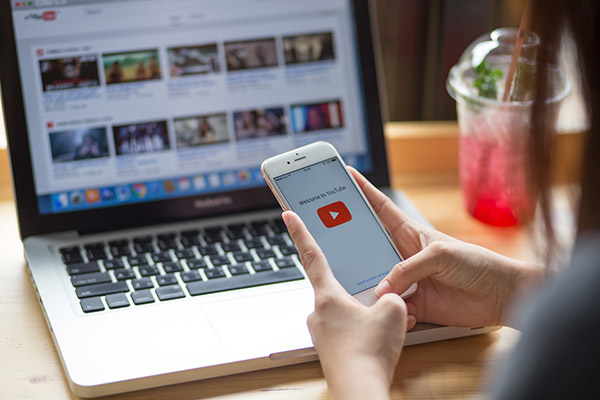
I’m a functional medicine doc in my area. That’s only after they’ve read Mark Hyman’s book. You have to niche down. You have to get comfortable like we’ve been talking about with the tech. You have to budget the time. Some of this stuff that we talked about initially with the focus time, you need expanses of time. This can’t happen like an hour here, an hour there. You need to take a good four hours chunk multiple times to figure some of this stuff out. You’re going to feel like it takes forever, but it takes forever for everybody when you’re figuring this stuff out.
That’s the exact same thing that my clients struggle with too. The tech is big but for niching, I’m hammering niching down their throat. We talked about it for so long. I feel like I’m this niche Nazi. I don’t know if I can say that in 2020, but I did. You have to niche. If the niche is off, the business is going to be off and you’re going to struggle. People aren’t going to understand what you do and they’re not going to get it. The niche is important. I’m glad you talked about how tricky it is. People do think they are leaving money on the table. They think they’re excluding people. They think it’s going to prevent people from working with them. I always give the example of I have a course that teaches hair tissue mineral analysis. How random is that? It’s random. It makes the most money out of anything in my business and I do nothing for it. It’s hyper niched. The money is in the niches. If people are interested in working with you, how could they connect with you? Where do you like to hang out online?
I am at Virtual-MD.org and they can learn all about what I do. They can come to check out my stuff. I got some free stuff on the website like Envisioning Your Ideal Day. It is a free download that gives you an example of what I offer. Go virtual or go home.
I also want to say I love that you have a freebie on Envisioning Your Ideal Day because I often ask people that and they have no idea. They’re like, “I don’t know.” I’m like, “If you don’t know what it looks like, how are you going to build a business you want to be running?” Thank you so much for hanging out with me, Dr. Evan. I appreciate your time. Thank you, everyone. We will be back for the next episode where I’ll help you become wealthy.
—
Thank you so much for reading. I’m wondering, do you want to help me with my mission to end health coach poverty? If you do, I need all the help I can get. All I need is two minutes of your time. If you could leave me a five-star review on iTunes, that would help so much. These reviews help get my show in front of more people, which means that I can reach more health coaches and complete my mission. Thank you so much for your help. I can’t wait to talk to you in the next episode.
Important Links:
- Dr. Evan Hirsch
- Virtual MD Initiative
- Fix Your Fatigue Program
- bestselling book – Fix Your Fatigue: The Four-Step Process to Resolving Chronic Fatigue, Achieving Abundant Energy and Reclaiming Your Life!
- podcast – Fix Your Fatigue Podcast
- 360 Health Biz Podcast – Dr. Evan Hirsch Episode
- iTunes – The Wealthy Coach Podcast
- Strategic Coach
- Practice Better
- Calendly
- SnapAppointments
- Infusionsoft
- ActiveCampaign
- Thinkific
- HasOffers
About Dr. Evan Hirsch
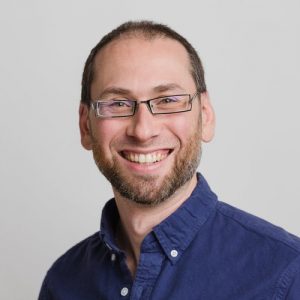
One month into my Family Medicine Residency Training Program (August 2004), I met my amazing wife, Stacy. She was full of life, social with friends, a great cook, traveler, small business owner and committed to growth through self-examination. Four months later, she was diagnosed with Chronic Fatigue and I had no tools to help her. She had adrenal fatigue, her cortisol levels (the main adrenal hormone) were non-existent and she was told to rest up and she would be better within one to two years. She purchased a sauna, took adrenal supplements and coffee enemas and worked on her psycho-spiritual side and she was mostly better in 3 years. I felt powerless and began my path learning everything I could about fatigue.
After I graduated residency in 2007, I started my own practice. I realized that my energy wasn’t like it was prior to residency. I was able to function, but I was tired. I didn’t have much energy for exercise, nor did I prioritize it. I had worked long and hard for my opportunity to create the kind of integrative medical practice that I wanted, so I pushed ahead. I thought it was a post residency issue that would resolve on its own in a few months.
